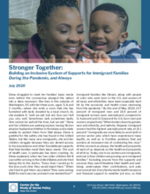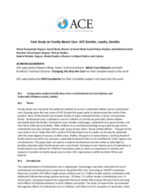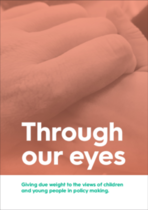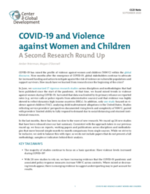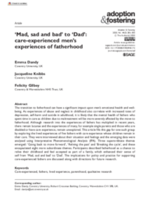Youth in Foster Care and the Reasonable and Prudent Parenting Standard
For this study, researchers conducted semi-structured retrospective telephone interviews with foster parents across one southeastern U.S. state to identify local retrospective perspectives on Reasonable and Prudent Parenting Standard (RPPS) implementation.

